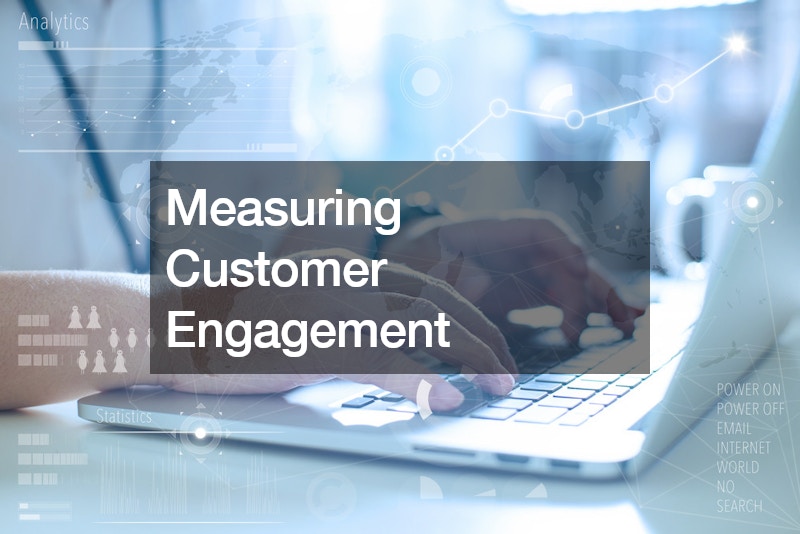Digital marketing research is essential for any business looking to thrive in today’s competitive landscape. By understanding the nuances of digital marketing, businesses can make informed decisions, optimize their strategies, and achieve better results. Digital marketing research involves gathering and analyzing data related to market trends, consumer behavior, and the effectiveness of various marketing tactics. This comprehensive approach ensures that businesses can adapt to changing conditions and continually improve their marketing efforts.
The importance of digital marketing research cannot be overstated. It provides insights that help businesses understand their target audience, track their competition, and measure the success of their campaigns. By leveraging these insights, businesses can develop more targeted and effective marketing strategies. In this blog, we will explore several key areas of digital marketing research and how they can benefit businesses in various industries.
Understanding Your Target Audience
Understanding your target audience is a fundamental aspect of digital marketing research. Knowing who your customers are, what they need, and how they behave online allows you to tailor your marketing efforts to meet their expectations. This involves demographic research, psychographic analysis, and studying customer behavior patterns. By gaining a deep understanding of your audience, you can create more relevant and engaging marketing messages that resonate with them.
For a business specializing in map decor, understanding the target audience is crucial for designing and marketing products that appeal to specific customer segments. For instance, map decor might attract travel enthusiasts, educators, and interior design aficionados. By conducting surveys, analyzing social media interactions, and studying purchase history, the business can identify the preferences and interests of these customer groups. This insight enables the business to develop targeted marketing campaigns that highlight the unique features of their map decor products, thereby increasing engagement and sales.
Conducting Competitive Analysis

Conducting competitive analysis is another critical component of digital marketing research. This process involves identifying your main competitors, analyzing their strengths and weaknesses, and understanding their marketing strategies. By knowing what your competitors are doing well and where they fall short, you can find opportunities to differentiate your business and gain a competitive edge. Competitive analysis helps you stay informed about industry trends and adapt your strategies to stay ahead.
For a local fence company, conducting competitive analysis can provide valuable insights into the market landscape. By researching other fence companies in the area, the business can identify what types of fencing are most popular, which companies have the highest customer satisfaction, and what marketing tactics are being used. This information can help the local fence company improve its offerings, enhance its customer service, and develop more effective marketing campaigns. For example, if competitors are heavily promoting wooden fences, the local fence company might highlight the benefits of alternative materials like vinyl or metal. By leveraging competitive analysis in their digital marketing research, the local fence company can better position itself in the market and attract more customers.
Utilizing Keyword Research Tools
Utilizing keyword research tools is an essential part of digital marketing research. Keyword research involves identifying the search terms that potential customers use when looking for products or services related to your business. By understanding which keywords are most relevant and have the highest search volume, you can optimize your website and content to rank higher in search engine results. This increases your visibility and drives more organic traffic to your site.
For paving contractors, utilizing keyword research tools can help identify the most effective search terms for their services. Tools like Google Keyword Planner, SEMrush, and Ahrefs can reveal popular keywords such as “asphalt paving,” “driveway repair,” and “paving contractors near me.” By integrating these keywords into their website content, blog posts, and online ads, paving contractors can improve their search engine rankings and attract more local customers searching for paving services. This targeted approach, informed by digital marketing research, ensures that the paving contractors reach their audience effectively.
Analyzing Website Traffic

Analyzing website traffic is a crucial element of digital marketing research. By examining data on how visitors interact with your website, you can gain insights into what is working well and what needs improvement. Key metrics to analyze include the number of visitors, page views, bounce rate, and average session duration. Understanding these metrics helps you optimize your website to enhance user experience and increase conversions.
For an artificial turf company, analyzing website traffic can provide valuable information about customer behavior and preferences. Using tools like Google Analytics, the company can track which pages attract the most visitors, how long users stay on each page, and which sources drive the most traffic (e.g., organic search, social media, or referral sites). If the data shows that visitors are spending a lot of time on product information pages but leaving without making a purchase, the company might consider adding more compelling calls-to-action or simplifying the checkout process. By leveraging these insights, the artificial turf company can improve their website’s effectiveness and better meet the needs of their customers.
Leveraging Social Media Insights
Leveraging social media insights is an important aspect of digital marketing research. Social media platforms offer a wealth of data that can help businesses understand their audience, track engagement, and measure the success of their campaigns. Metrics such as likes, shares, comments, and follower growth provide valuable feedback on how well your content resonates with your audience. Using these insights, businesses can refine their social media strategies to increase reach and engagement.
For auto window tinting services, leveraging social media insights can significantly enhance their marketing efforts. By analyzing metrics from platforms like Facebook, Instagram, and Twitter, the business can determine which types of posts generate the most interaction. For example, if posts featuring before-and-after photos of window tinting projects receive the most likes and shares, the company can focus on creating more of this content. Additionally, monitoring comments and direct messages can provide insights into customer preferences and questions, allowing the business to address common concerns and highlight key benefits in their posts. By incorporating social media insights into their digital marketing research, auto window tinting services can create more effective and engaging social media campaigns.
Tracking Conversion Rates
Tracking conversion rates is a vital part of digital marketing research. Conversion rates measure the percentage of website visitors who complete a desired action, such as making a purchase, filling out a contact form, or signing up for a newsletter. By tracking these rates, businesses can assess the effectiveness of their marketing strategies and identify areas for improvement. High conversion rates indicate that your marketing efforts are successfully driving user actions, while low rates suggest a need for optimization.
For an auto body repair shop, tracking conversion rates can provide valuable insights into the effectiveness of their online presence. By using tools like Google Analytics and conversion tracking features in ad platforms, the shop can monitor how many visitors schedule appointments or request quotes through their website. If the conversion rate is low, the shop might need to improve its website design, streamline the booking process, or create more compelling calls-to-action. By regularly analyzing and optimizing conversion rates, the auto body repair shop can enhance its digital marketing efforts and attract more customers.
Measuring Customer Engagement

Measuring customer engagement is essential in digital marketing research. Engagement metrics, such as time spent on site, pages per session, and interaction with content, provide insights into how interested and involved your audience is with your business. High levels of engagement indicate that your content is resonating with visitors, while low engagement might suggest the need for more compelling or relevant content.
For a moving company, measuring customer engagement can help improve their marketing strategies and customer relationships. By analyzing engagement metrics on their website and social media platforms, the moving company can identify which types of content attract the most interest. For example, blog posts about moving tips, customer testimonials, and detailed service descriptions might keep visitors on the site longer and encourage them to explore multiple pages. Additionally, engaging with customers through social media comments and messages can build stronger connections and loyalty. By focusing on customer engagement, the moving company can create a more interactive and satisfying experience for potential clients.
Exploring Market Trends
Exploring market trends is a critical component of digital marketing research. Understanding current trends in your industry helps you stay competitive and adapt your strategies to meet changing customer needs. Market trends can include shifts in consumer behavior, emerging technologies, and new marketing techniques. Keeping up with these trends allows businesses to innovate and stay ahead of the competition.
For a car insurance company, exploring market trends can reveal valuable opportunities for growth and innovation. By researching industry reports, analyzing competitor strategies, and monitoring consumer preferences, the car insurance company can identify emerging trends such as the increasing demand for usage-based insurance or the growing importance of digital channels. Adapting their marketing strategies to align with these trends—such as offering personalized insurance plans based on driving behavior or enhancing their online customer service capabilities—can help the company attract new customers and retain existing ones. By staying informed about market trends, the car insurance company can ensure its digital marketing efforts remain relevant and effective.
Evaluating Content Performance

Evaluating content performance is a crucial aspect of digital marketing research. By analyzing how different types of content perform, businesses can determine what resonates most with their audience and refine their content strategies accordingly. Key metrics to evaluate include page views, time spent on page, social shares, and engagement rates. Understanding these metrics helps businesses create more impactful and engaging content.
For a foundation contractor, evaluating content performance can lead to more effective marketing strategies. By tracking metrics for blog posts, project showcases, and educational articles, the contractor can identify which content types attract the most interest. For example, if blog posts about foundation maintenance tips receive high engagement, the contractor might produce more similar content. Additionally, analyzing the performance of content shared on social media can reveal which posts generate the most interactions, guiding future content creation. By continually evaluating content performance, the foundation contractor can enhance their digital marketing efforts and better meet the needs of their audience.
Integrating Data Analytics
Integrating data analytics into digital marketing research is essential for making informed decisions and optimizing marketing strategies. Data analytics provide a comprehensive view of how various marketing efforts are performing, allowing businesses to track key performance indicators (KPIs), identify trends, and make data-driven adjustments. This integration ensures that marketing strategies are continuously refined and improved based on solid evidence.
For a local equipment rental company, integrating data analytics can significantly enhance their marketing effectiveness. By using analytics tools to track website traffic, customer inquiries, and rental bookings, the company can gain insights into which marketing channels are driving the most business. For example, if data shows that a significant portion of traffic and conversions come from social media ads, the company can allocate more budget to these campaigns. Additionally, analyzing customer demographics and behavior can help the company tailor their marketing messages to better resonate with their target audience. Integrating data analytics into their digital marketing research allows the local equipment rental company to make strategic decisions that boost their marketing ROI.
Conclusion
Digital marketing research is essential for any business looking to thrive in today’s competitive landscape. By understanding the nuances of digital marketing, businesses can make informed decisions, optimize their strategies, and achieve better results. From understanding your target audience and conducting competitive analysis to leveraging keyword research tools and analyzing website traffic, each aspect of digital marketing research provides valuable insights that drive business success.
Whether it’s measuring customer engagement, exploring market trends, or evaluating content performance, the comprehensive approach of digital marketing research ensures that businesses can adapt to changing conditions and continually improve their marketing efforts. For businesses like map decor companies, local fence companies, and paving contractors, utilizing these research strategies can lead to more effective marketing campaigns and stronger connections with their audience. Integrating data analytics further enhances the ability to make data-driven decisions that optimize marketing strategies and improve ROI.
In conclusion, the evolution of digital marketing has opened up numerous opportunities for businesses to connect with their customers and grow their brands. By investing in thorough digital marketing research, businesses can stay ahead of the competition, understand their market, and create more impactful and successful marketing strategies. This commitment to ongoing research and adaptation is key to thriving in the ever-changing digital landscape.


